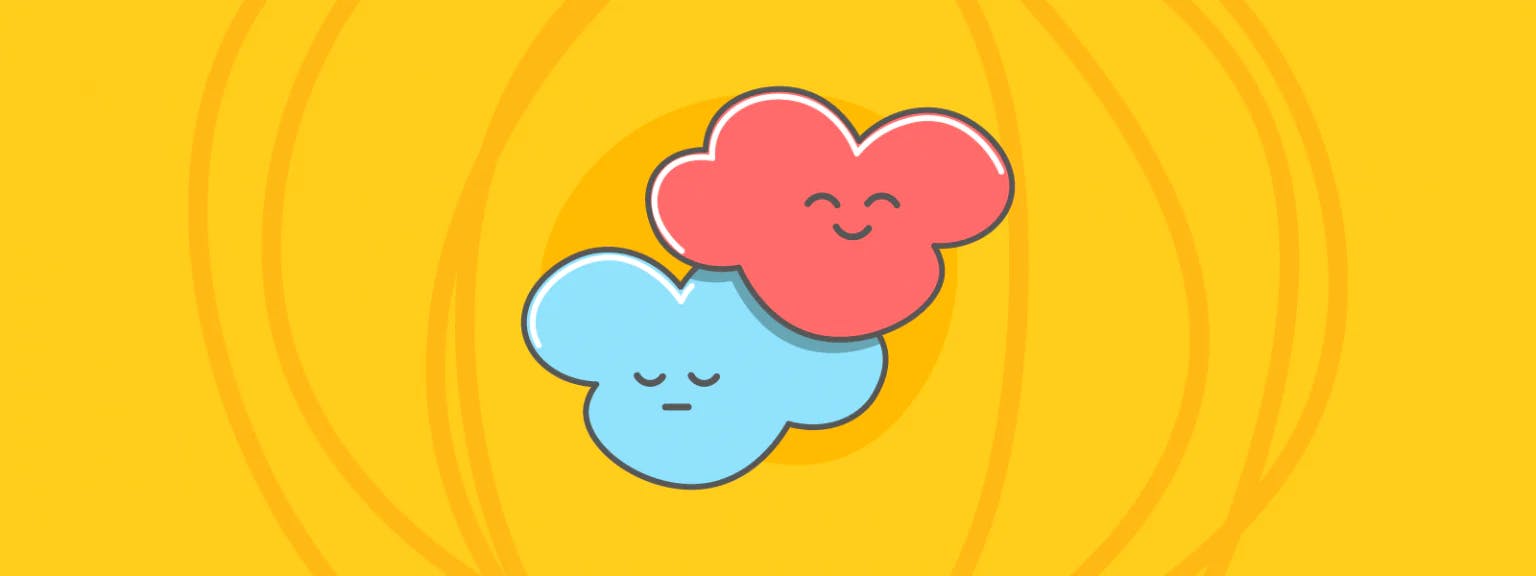
World Mental Health Day

World Mental Health Day, which takes place on October 10th, has the objective of raising awareness of mental health issues around the world and to mobilise efforts in support of mental health. To honour this important day, we met with Lotus Smits, Glovo’s Global Head of Diversity, Inclusion & Culture to hear her take on the importance of mental health and what companies and individuals alike can do to start improving their practices.

Lotus Smits, Glovo’s Global Head of Diversity, Inclusion & Culture
Why is mental health so stigmatised in professional environments?
From time to time we may suffer with mental health issues, just as we may suffer from physical health issues. We all have times when we feel down or stressed or panicked. Sometimes these feelings develop into a more serious problem that requires professional help, but often these feelings pass if we take steps to help ourselves.
Breaking the stigma around mental health is something I am a strong advocate for. We assume that everyone around us is leading seemingly happy lives – especially in social media feeds, and that we are the only ones struggling. The research, and conversations with those close to me, reveal that this assumption is just not true.
A quote from Brené Brown’s book, Daring Greatly, really stood out to me when I read it last year and seemed completely true for this situation as well. It reads:
“We love seeing raw truth and openness in other people, but we’re afraid to let them see it in us. We’re afraid that our truth isn’t enough—that what we have to offer isn’t enough without the bells and whistles, without editing, and impressing. Here’s the crux of the struggle: I want to experience your vulnerability but I don’t want to be vulnerable.”
Much like we will all face physical issues at some stage in our lives, so too will we all face mental issues at some stage making it very important to talk openly and honestly about it. When we want to improve our physical health, we have no problems asking for a coach or help from friends, but when we struggle mentally, we do, we think it looks bad. Mental fitness is just as important as physical fitness.
Only by doing so, we can destigmatize the topic and by doing so, we can help avoid people from going from a bad place to a worse place by offering the right support and resources.
What does mental health awareness look, sound, and feel like in the workplace and for Glovo?
Through our well-feeling program we would like to build an environment at Glovo where we normalize that “it’s ok not to be ok”. Where we recognise that our wellbeing is not static and there will be moments when we will be thriving and moments when we will need to slow down, reflect, and recharge. We want to make sure our health is something spoken about and supported.
At Glovo we are in the process of developing a holistic approach to well-feeling, based on 4 pillars:
- Emotional: The ability to be positive, solve problems, and overcome difficulties.
- Mental: The ability to practice stress-management techniques, be resilient, and generate the emotions that lead to good feelings.
- Physical: The ability to improve the functioning of your body through healthy living and good exercise habits.
- Social: The ability to communicate, develop meaningful relationships with others, and maintain a support network that helps you overcome loneliness.
In our way of working, we focus on awareness, prevention, support and reintegration.
Related to awareness, we foster an open and supportive environment through learning and understanding of all aspects of wellbeing. Twice a year, we organise well-feeling weeks where we invite subject matter experts to discuss the topic. We also host activities like workshops to bring the topic to our people’s radar
Related to prevention, we share knowledge on what we can do individually and collectively to boost our health and foster a healthy work environment. We provide our colleagues with tools, like iFeel and Gympass, to stay mentally and physically fit. Next to this, we have a flexible time off policy, which means employees can take the time off that they need. This is a huge benefit to really take breaks when you feel you need them. We also encourage our colleagues to actively participate in our Glovo Clubs. These Clubs are ways for colleagues to connect on shared interests and it’s an important tool to create a sense of belonging.
Related to support, we provide and promote available resources and guidance on how to best support each other as a colleague or manager. For example, we have the Specialized treatment policy at Glovo, where we cover 50% – 100% of the treatment of someone in case it’s not covered by public health. E.g. gender reassignment surgery, fertility treatments, etc.
On reintegration, we deliver clarity on processes, expectations, roles and responsibilities before, during and after any long term leave.
Do you have any tips for companies that would like to start mental health programs in their workplace?
Start by opening the conversation at work so colleagues feel there is a space to talk about their mental health and wellbeing. Show up with curiosity, empathy and compassion and really listen to what your colleagues have to say about the topic. What is the company doing well, what are people struggling with?
Create safe spaces for people to open up, like focus groups, so they can help shape the strategy related to the biggest needs colleagues see for the company.
In my opinion, creating a safe space is the foundation of a wellbeing program. Making sure people can come to you with their challenges (and then feeling listened too) is the single most important aspect to drive progress. Setting the right example is equally important because it’s about showing people that I take time off when I need a moment to reset so they can feel comfortable when they need that time for themselves. From there, companies can start building tools, systems, and processes to raise awareness, work on prevention, provide the right / tailor-made support and reintegrate people if they have been out.
Do you have any advice for individuals struggling to find mental health support via their employer?
At work, try to find 1 person, a buddy, who you trust and explore if you feel ready to share your story with them. If it’s not your manager or HR, maybe it’s a team member you have a strong connection with or another manager? It’s important you have a sense of psychological safety with whomever you choose to share your story with. This buddy will help you to avoid struggling in silence at work, and will be there for you when you need someone to talk to.
Also, you could reflect on who is a supportive senior leader on the topic of mental health in your company. Your company might not have a strong stance or program on mental health but, there are always people who support it. Did anyone in senior leadership talk about personal challenges or have they spoken about actions they take to take care of themselves? E.g. that they exercise regularly, sleep, and take vacation. If you identify a leader who talks more openly about this, this can help you decide if you want to approach them.
This leader could then become a force of influence for the company by leveraging their position to help destigmatize the topic and drive the change necessary for the company to provide more support.
Finally, how do you manage your own well-being?
Eat, drink, sleep, repeat
You only get out of your body what you put in. So I limit things like junk food, caffeine, and smoking, and instead try to eat healthily, drink plenty of water and try to get around eight hours of sleep to keep me at my peak.
Get up from the couch and get sweating!
Exercise isn’t just great for my physical health – it also helps me to clear my body of stress hormones which can make me feel tired and difficult to concentrate. In fact, research shows that exercise works as well as antidepressants for some people. So, being active is something I try to do a couple of times a week
Quiet moments
We all deal with stress in different ways. My coping strategy is going for a walk with my dog in the park or at the beach, or listening to calming music or writing in my journal to clear my thoughts.
Pause and reset
Often, it’s during a break from thinking about a problem that the solution presents itself, so I try to give my brain a rest every now and then. I use this time to meditate or to make a to-do list, so everything I am keeping in my head is on paper (I even have this notebook next to my bed so when I wake up stressing about to-do’s I can’t forget, it’s there to write things down and go back to sleep. I am very old fashioned and always have a notebook with me, but there are also many great apps to keep track of your to-do’s / dump your thoughts.
Being my own champion
Often, the only person putting an unrealistic expectation on us is ourselves. But the reality is… life’s too short for ‘I should have…’, so I try to give myself encouragement by writing down what I am grateful for in the morning, what I am proud of and what I would like to achieve that day (in a realistic way 😉).